Diving into the realm of drone business ideas unveils a world teeming with innovation, opportunity, and the promise of revolutionising traditional industries. From aerial photography to delivering life-saving supplies, drones are swiftly becoming indispensable tools across a wide array of sectors. This blog post aims to explore the diverse and burgeoning opportunities within the drone industry, shedding light on how entrepreneurs can harness the potential of drone technology to launch businesses that not only thrive but also contribute positively to society. As we navigate through various drone business ideas, we’ll uncover the keys to success in this dynamic market, including navigating regulatory landscapes, leveraging technological advancements, and meeting the evolving needs of a world on the brink of an aerial technology revolution.
Table of Contents
Aerial Photography and Videography
In the realm of drone business ideas, aerial photography and videography stand out as a cornerstone opportunity. This sector not only appeals to a wide range of clients—from real estate agents and wedding planners to commercial advertisers—but also offers drone entrepreneurs a chance to unleash their creativity while capturing stunning visuals from the skies.
Breaking Into the Market
To get started in aerial photography and videography, investing in the right equipment is essential. A drone with a high-resolution camera, gimbal stabilisation, and reliable flight controls is a must. It’s not just about the hardware, though; honing your skills in both piloting and photography will set you apart in this competitive market.
Target Niches
- Real Estate: Offer breathtaking aerial shots and 360-degree tours to real estate agents looking to showcase properties in a compelling way.
- Weddings and Events: Capture unique perspectives of special moments, providing clients with unforgettable memories.
- Commercial Advertising: Work with businesses to create aerial shots for commercials or promotional materials, adding a wow factor that ground-level photography can’t match.
Building Your Portfolio
Creating a diverse portfolio is key to attracting clients. Include a variety of shots—panoramic views, close-ups, and tracking shots—to demonstrate your range. A well-crafted showreel can serve as a powerful tool to showcase your abilities and previous work, drawing in potential customers.
Marketing and Legal Considerations
Navigating the legal landscape is crucial. Ensure you’re aware of local regulations regarding drone flying, especially in populated or sensitive areas. Insurance is also a must to protect your equipment and business. Marketing your services effectively, through social media, a professional website, and networking, will help you reach your target audience.
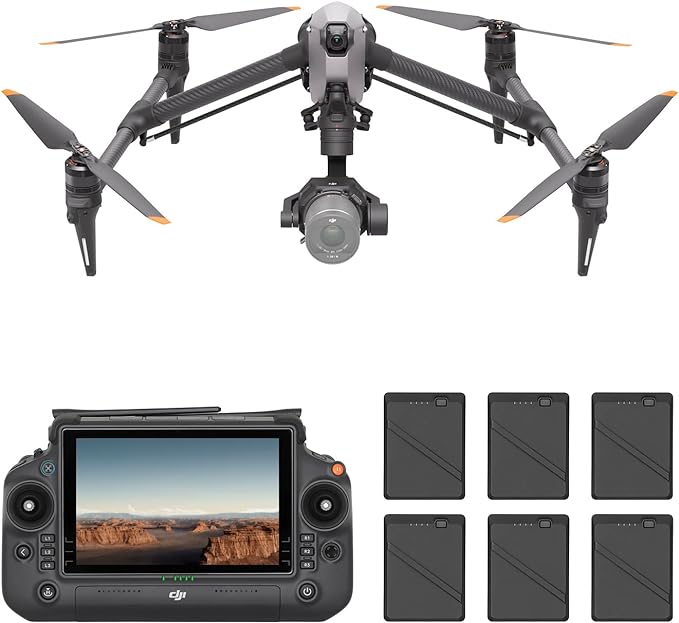
In the rapidly growing drone industry, aerial photography and videography offer a lucrative and fulfilling path for entrepreneurs. By focusing on quality, versatility, and compliance with regulations, you can build a thriving business that elevates the perspectives of your clients. Whether capturing the essence of a newly listed property, the joyous moments of a wedding, or the compelling story of a brand, your drone can be the key to unlocking new heights in digital storytelling.
Agriculture and Land Management: Revolutionizing Farming with Drone Business Ideas
In the realm of agriculture and land management, drones are not just futuristic gadgets but essential tools that revolutionize how we grow food, manage land, and conserve resources. The application of drone technology in agriculture opens up a plethora of business opportunities for entrepreneurs looking to enter the drone industry. This segment explores how drone business ideas can transform agriculture and land management, making operations more efficient, cost-effective, and environmentally friendly.
Drones in agriculture, often referred to as agri-drones, provide farmers and land managers with an unprecedented level of data and analysis, enabling precision agriculture practices. These practices involve using drones equipped with sensors to collect data on soil health, crop health, moisture levels, and more. This information allows for targeted intervention, reducing waste and ensuring that crops receive exactly what they need to thrive.
Key Applications of Drones in Agriculture and Land Management
- Crop Monitoring and Health Assessment: Drones equipped with high-resolution cameras and multispectral sensors can survey vast tracts of land quickly, identifying areas that require attention due to pests, disease, or poor nutrition. This targeted approach to crop monitoring can significantly improve yield and reduce the need for blanket application of pesticides and fertilizers.
- Soil and Field Analysis: Before planting, drones can be used to gather detailed information about the soil’s condition. This data helps in planning the seeding patterns, irrigation, and nutrient management strategies that will be most effective for a particular field.
- Irrigation Management and Water Conservation: Through thermal imaging, drones can identify areas of a field that are too dry or receiving too much water. Adjusting irrigation based on these insights can lead to more efficient water use and better crop growth.
- Planting and Seeding: Some drones are equipped to carry out planting and seeding, dropping seeds at precise locations and at optimal soil depths. This method can reduce labor costs and improve the efficiency of planting operations.
- Livestock Management: Drones are also being used to monitor the health and movement of livestock, especially in large, hard-to-navigate farms. They can track animals, monitor their health, and even help in rounding them up, making livestock management more manageable and less time-consuming.
Starting a Drone Business in Agriculture
For entrepreneurs, starting a drone business in agriculture requires an understanding of both drone technology and agricultural practices. Investing in the right equipment, such as drones capable of carrying the necessary sensors and cameras, is crucial. Additionally, building relationships with farmers and agricultural businesses by demonstrating how drone technology can solve their specific problems will be key to your success.
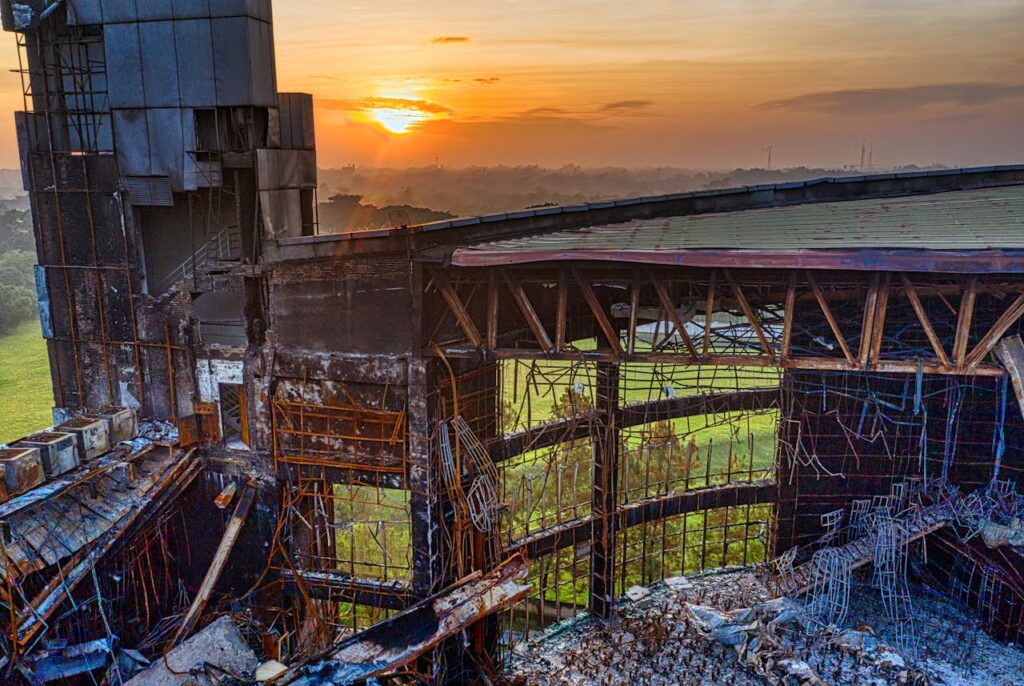
Drones are setting a new standard in agriculture and land management, providing solutions that were once thought impossible. For drone entrepreneurs, the agriculture sector offers fertile ground for innovation, with opportunities to impact food production and resource management positively. By leveraging drone technology, businesses can help create a future where farming is more sustainable, efficient, and in tune with the needs of the earth.
Construction and Infrastructure Inspection: Elevating Standards with Drone Business Ideas
The integration of drone technology into construction and infrastructure inspection marks a significant advancement in how we monitor, evaluate, and maintain our built environment. Drones, with their ability to reach difficult places and provide detailed aerial perspectives, offer a more efficient, safer, and cost-effective method for inspection tasks. This section delves into the transformative impact of drone business ideas on the construction and infrastructure sectors, highlighting the potential for entrepreneurs looking to innovate in these fields.
Revolutionizing Inspection Processes
In the realm of construction and infrastructure, drones are quickly becoming indispensable tools. They serve multiple purposes, from initial site surveys and ongoing inspection to the final stages of construction and infrastructure maintenance. Drones equipped with high-resolution cameras, thermal imaging, and other sensors can easily identify issues that are challenging to detect from the ground or through traditional methods.
Key Applications of Drones in Construction and Infrastructure
- Site Surveys and Mapping: Before the first brick is laid, drones can provide detailed topographical surveys, helping project managers plan construction with a comprehensive understanding of the site. These aerial maps are crucial for assessing potential challenges and optimizing layout plans.
- Progress Monitoring: Drones offer a straightforward way to monitor construction progress regularly. By capturing consistent, up-to-date images of a construction site, stakeholders can review the project’s progress, ensuring timelines and standards are met.
- Structural Inspections: Inspecting structures such as bridges, tall buildings, and wind turbines is safer and more efficient with drones. They can closely examine structures for damage or wear, providing clear images and data without the need for scaffolding or putting workers at risk.
- Thermal Imaging: Using drones equipped with thermal cameras, inspectors can detect areas of heat loss in buildings, identify moisture intrusion, or find electrical faults. This capability is invaluable for both new construction and maintenance of existing structures.
- Safety Compliance: Drones can also play a crucial role in ensuring that construction sites adhere to safety regulations. Regular aerial inspections can spot potential hazards, ensuring that corrective measures are taken promptly.
Starting a Drone Business in Construction and Infrastructure Inspection
Launching a drone business focused on construction and infrastructure requires a blend of technical drone expertise and a deep understanding of the construction industry’s needs. Essential steps include investing in high-quality drones with the necessary imaging capabilities, obtaining the required certifications and insurance, and building relationships with construction firms, engineering companies, and government agencies responsible for infrastructure maintenance.
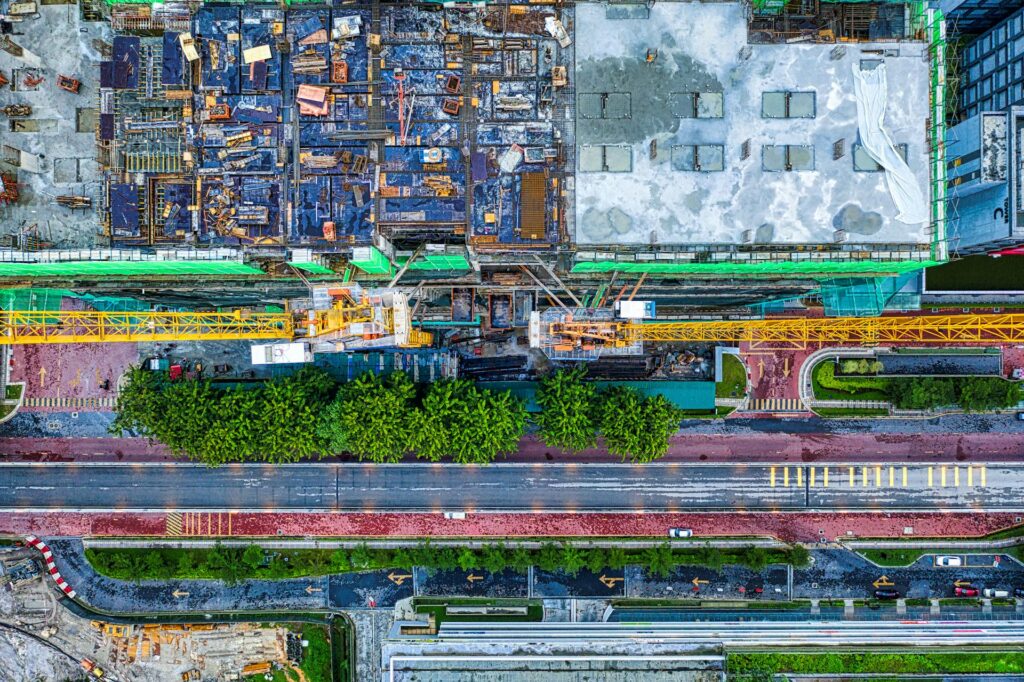
Drones are setting new standards in the construction and infrastructure sectors, offering innovative solutions to age-old challenges. For entrepreneurs, this presents a golden opportunity to develop drone business ideas that meet the growing demand for safer, more efficient inspection methods. As the industry continues to evolve, drone technology stands at the forefront, promising a future where construction and infrastructure inspection is transformed for the better.
Search and Rescue Operations: Saving Lives with Drone Business Ideas
In the critical field of search and rescue operations, drones have emerged as vital tools that can make the difference between life and death. Leveraging the agility, speed, and advanced sensing capabilities of drones can significantly enhance the efficiency and effectiveness of search and rescue missions. This segment explores how drone business ideas are being utilized to support and innovate within search and rescue operations, highlighting the potential for entrepreneurs to contribute to this noble cause.
Transforming Search and Rescue Missions
Drones are transforming search and rescue operations by providing rapid aerial surveillance over challenging terrains, reducing the time and risk associated with manual searches. Equipped with high-resolution cameras, thermal imaging, and night vision, drones can locate missing persons in remote areas, natural disasters, and at sea, often reaching places where humans and traditional methods cannot.
Key Applications of Drones in Search and Rescue
- Rapid Aerial Surveillance: Drones can cover large areas quickly, providing real-time video feeds to search teams. This immediate overview can be crucial in planning and conducting search operations more effectively.
- Thermal Imaging for Detection: Utilizing thermal imaging, drones are capable of identifying heat signatures of humans or animals, making them especially useful in searches during the night or in dense areas where visibility is low.
- Delivery of Emergency Supplies: Beyond detection, drones can also deliver emergency supplies such as food, water, and medical kits to stranded individuals, providing immediate relief until rescue teams can reach the location.
- Accessing Dangerous Terrains: Drones can enter hazardous environments, such as areas affected by chemical spills, wildfires, or avalanches, to search for survivors without putting rescue personnel in danger.
- Post-Disaster Assessment: After natural disasters, drones can quickly assess damage, identify safe and unsafe areas, and help plan the deployment of rescue teams more efficiently.
Starting a Drone Business in Search and Rescue Operations
Entrepreneurs interested in starting a drone business focused on search and rescue operations need to consider several key factors. This includes investing in specialized drones equipped for the task, training in the operation of drones under emergency conditions, and developing partnerships with local authorities, rescue organizations, and humanitarian groups. Understanding the regulatory environment and obtaining the necessary permissions for operating drones in emergency scenarios is also crucial.
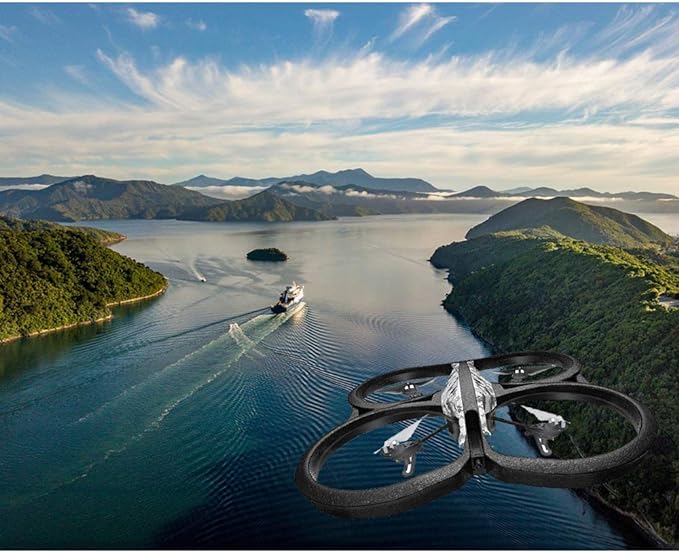
Drones offer a promising avenue to bolster search and rescue operations, providing rapid, flexible, and safe solutions to save lives. For drone entrepreneurs, this sector not only presents a business opportunity but also a chance to make a significant impact on society by improving the speed and outcomes of rescue missions. As technology advances, the role of drones in search and rescue is set to grow, highlighting the importance of innovation and collaboration in this lifesaving field.
Environmental Monitoring and Conservation: Drones at the Forefront of Eco-Innovation
In the critical fight against environmental degradation and biodiversity loss, drones are emerging as powerful allies. Through drone business ideas focused on environmental monitoring and conservation, entrepreneurs are finding ways to contribute to the preservation of our planet. This segment delves into how drones are being used to gather data, monitor ecosystems, and implement conservation strategies more efficiently than ever before.
Revolutionizing Environmental Conservation
Drones, with their ability to cover vast areas quickly and access hard-to-reach locations, offer a unique vantage point for environmental scientists and conservationists. Equipped with advanced sensors and imaging technology, drones can collect detailed environmental data, track wildlife, monitor forest health, and even assist in reforestation efforts. Their use in environmental monitoring and conservation projects represents a significant leap forward in our ability to protect natural habitats and biodiversity.
Key Applications of Drones in Environmental Monitoring and Conservation
- Wildlife Monitoring and Anti-Poaching Efforts: Drones equipped with cameras and thermal imaging are being used to track endangered species and monitor their habitats. They also serve as a deterrent to poachers by patrolling protected areas.
- Forest and Vegetation Analysis: High-resolution imagery from drones helps in assessing forest health, detecting disease outbreaks, and monitoring changes in vegetation cover. This information is vital for forest management and combating deforestation.
- Water Quality Assessment: Drones can collect water samples from difficult-to-access bodies of water or use onboard sensors to measure water quality parameters, aiding in the monitoring of pollution and the health of aquatic ecosystems.
- Erosion and Land Use Change Detection: By regularly capturing aerial images of landscapes, drones can track erosion patterns, land use changes, and the effectiveness of soil conservation measures.
- Reforestation and Restoration Projects: Drones are being used to map degraded lands for restoration and even directly sow seeds in areas that are challenging to reach by traditional methods.
Starting a Drone Business in Environmental Monitoring and Conservation
Entrepreneurs aiming to venture into the environmental sector with drones should focus on building expertise in ecological data collection and analysis. Collaborating with environmental organizations, research institutions, and government agencies can provide opportunities to apply drone technology to real-world conservation challenges. Additionally, staying informed about environmental regulations and obtaining the necessary permits for drone operations in sensitive areas are crucial steps.
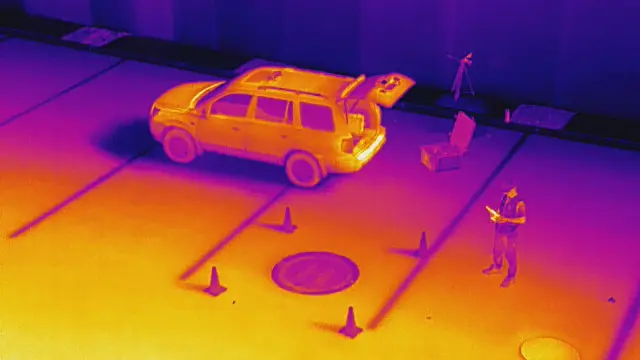
Drones offer an innovative approach to tackling some of the most pressing environmental challenges of our time. For businesses, leveraging drone technology for environmental monitoring and conservation not only represents a growing market opportunity but also aligns with global efforts to protect our natural world. As this technology continues to evolve, its potential to support environmental sustainability becomes increasingly significant, paving the way for a new era of eco-friendly innovation.
Security and Surveillance: Enhancing Protection with Drone Business Ideas
In the ever-evolving landscape of security and surveillance, drones are becoming indispensable tools for enhancing safety and monitoring capabilities. The agility, speed, and advanced technological capabilities of drones offer a new perspective in surveillance, making them a valuable asset for public safety, private security, and critical infrastructure protection. This segment explores the integration of drone business ideas into the security and surveillance sectors, underscoring the potential for entrepreneurs to innovate and improve security measures.
Transforming Security Operations
Drones are transforming the field of security and surveillance by providing a versatile and efficient solution to traditional challenges. Equipped with high-definition cameras, night vision, and thermal imaging, drones can perform tasks ranging from routine patrols to emergency response support, offering a bird’s eye view that enhances situational awareness and operational effectiveness.
Key Applications of Drones in Security and Surveillance
- Perimeter Surveillance and Intrusion Detection: Drones can patrol the perimeters of sensitive areas such as industrial complexes, airports, and borders, providing real-time video feeds to detect and deter unauthorized entries.
- Crowd Monitoring and Public Safety: At large public events or gatherings, drones can be deployed to monitor crowd densities, identify potential safety hazards, and assist in emergency response coordination.
- Critical Infrastructure Inspection: Drones play a crucial role in inspecting and monitoring critical infrastructure, including power plants, bridges, and pipelines, for signs of sabotage, vandalism, or structural issues.
- Disaster Response and Recovery: In the aftermath of natural disasters or accidents, drones can quickly survey affected areas, assess damage, and locate survivors, providing valuable information to first responders and recovery teams.
- Wildlife and Environmental Protection: Beyond human-centric security, drones are also used to combat poaching and monitor protected areas, contributing to wildlife conservation efforts.
Starting a Drone Business in Security and Surveillance
To start a drone business in the security and surveillance sector, entrepreneurs should focus on understanding the specific needs and regulatory requirements of the industry. Investing in drones equipped with the necessary surveillance technology and obtaining the appropriate certifications for commercial drone operations are essential steps. Building relationships with law enforcement, private security firms, and other stakeholders can also open doors to contract opportunities and partnerships.

Drones are redefining the boundaries of security and surveillance, offering innovative solutions to age-old challenges. For businesses, the growing demand for drone-enhanced security services presents a lucrative opportunity to make a tangible impact on public safety and private security measures. As drone technology continues to advance, its role in safeguarding our communities and critical assets is set to expand, promising a future where security operations are more proactive, efficient, and responsive.
Delivery and Logistics: Revolutionizing Distribution with Drone Business Ideas
The landscape of delivery and logistics is on the cusp of a significant transformation, thanks to the integration of drones into the supply chain. Drone technology promises to revolutionize how goods are transported, offering faster, more efficient, and environmentally friendly alternatives to traditional delivery methods. This segment delves into the potential of drone business ideas within the realm of delivery and logistics, highlighting how entrepreneurs can tap into this innovative market to streamline distribution processes.
Pioneering a New Era in Delivery
Drones are setting the stage for a new era in the delivery and logistics industry by enabling direct-to-consumer delivery services that bypass conventional road transport challenges, such as traffic congestion and infrastructure limitations. With the capacity to carry packages directly from distribution centers to customers’ doorsteps, drones offer a swift and convenient delivery solution that can significantly enhance customer satisfaction and operational efficiency.
Key Applications of Drones in Delivery and Logistics
- E-commerce and Retail Deliveries: Drones are increasingly being explored by e-commerce giants and retail companies for same-day delivery services, particularly for lightweight items. This method not only reduces delivery times but also minimizes carbon emissions associated with traditional delivery vehicles.
- Medical Supplies and Emergency Aid: In critical health situations and remote areas, drones can deliver essential medical supplies, vaccines, and emergency aid, overcoming geographical barriers and ensuring timely assistance.
- Food Delivery Services: The food industry is experimenting with drone deliveries to offer customers a faster, more efficient way of receiving orders, potentially transforming the food delivery landscape.
- Agricultural Supplies Delivery: Drones offer a practical solution for delivering agricultural inputs, such as seeds and fertilizers, directly to farmers in rural areas, enhancing agricultural productivity and resource management.
- Industrial and Spare Parts Logistics: In industrial settings, drones can expedite the transport of spare parts and essential components across large manufacturing plants or between facilities, minimizing downtime and improving supply chain resilience.
Starting a Drone Business in Delivery and Logistics
Launching a drone delivery and logistics business requires a comprehensive understanding of drone technology, regulatory compliance, and the specific needs of the target market. Entrepreneurs should focus on building a fleet of reliable delivery drones, developing robust logistics software for efficient operations, and establishing partnerships with businesses seeking innovative delivery solutions. Navigating the regulatory landscape and securing the necessary permissions for commercial drone flights is also critical to operational success.
Drones are poised to redefine the delivery and logistics industry, offering scalable, cost-effective, and environmentally friendly solutions to meet the growing demand for rapid distribution services. For entrepreneurs, the burgeoning drone delivery market presents a unique opportunity to pioneer innovative business models that address the logistical challenges of the modern world. As regulations evolve to accommodate this new mode of transport, the skies will become the next frontier for delivering goods to the global marketplace.
Drone Training and Education: Empowering the Next Generation of Pilots
The booming drone industry not only demands innovative technology but also skilled individuals capable of navigating these sophisticated systems. Drone training and education have become essential components, offering a pathway for enthusiasts and professionals alike to gain the expertise required for safe and efficient drone operation. This section explores the growing field of drone training and education as a lucrative drone business idea, highlighting how entrepreneurs can contribute to shaping the future of aerial innovation.
Building a Skilled Drone Workforce
As drones become increasingly integrated into commercial, environmental, and recreational activities, the need for comprehensive training programs has never been more apparent. These programs are designed to equip individuals with the knowledge of drone mechanics, flight operations, regulatory compliance, and ethical piloting practices, ensuring that drone pilots are well-prepared to meet the demands of a diverse range of applications.
Key Components of Drone Training and Education Programs
- Certification Preparation: Offering courses that prepare individuals for official drone piloting certifications, such as the FAA Part 107 test in the United States, which is required for commercial drone operations.
- Practical Flight Training: Providing hands-on flight training sessions that allow learners to practice flying drones under the guidance of experienced instructors, focusing on maneuvering, navigation, and safety protocols.
- Maintenance and Repair Workshops: Educating pilots on the basics of drone maintenance and repair, ensuring they can perform routine checks and address common technical issues.
- Specialized Application Training: Creating courses focused on specific drone applications, such as aerial photography, surveying, or inspection services, catering to the niche interests and career aspirations of learners.
- Online Learning Platforms: Developing online courses and resources that offer flexibility for learners to study drone theory, regulations, and best practices at their own pace.
Starting a Drone Training and Education Business
To establish a successful drone training and education business, entrepreneurs should start by gaining a deep understanding of drone technology and regulatory landscapes. Developing a curriculum that balances theoretical knowledge with practical skills is crucial. Additionally, obtaining accreditation or partnerships with recognized drone organizations can enhance the credibility and attractiveness of your programs. Marketing your courses to schools, corporations, and individual enthusiasts through online platforms and at industry events can help build your clientele.
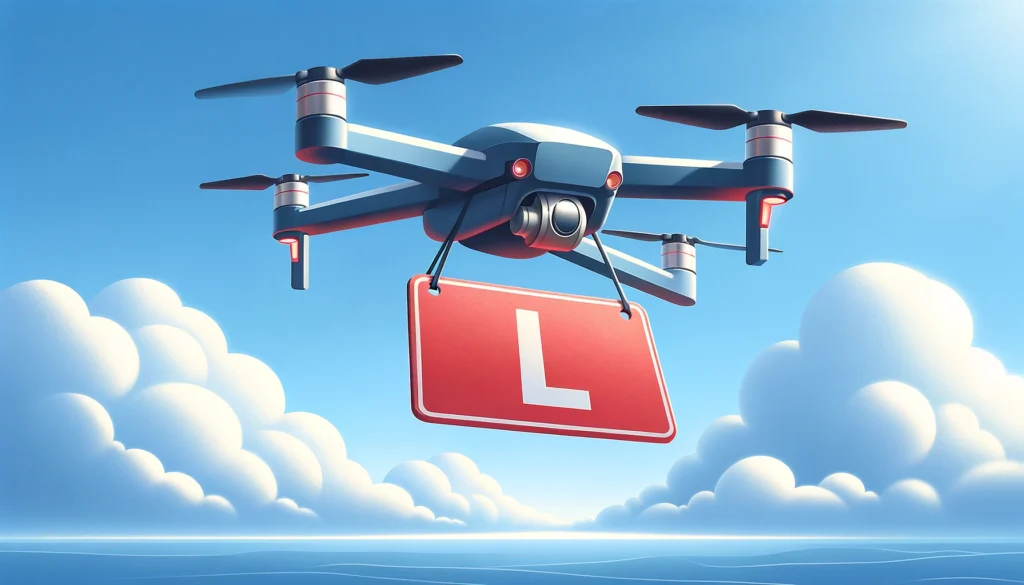
Drone training and education present a significant opportunity for entrepreneurs to contribute to the drone industry’s growth by nurturing a skilled and knowledgeable pilot workforce. By offering tailored training programs that meet the current demands of the drone market, businesses can empower individuals to pursue careers in this dynamic field, driving innovation and ensuring the safe integration of drones into our skies.
Software Development for Drone Operations: Unlocking Aerial Potential
In the rapidly evolving drone industry, the development of specialized software for drone operations has become a critical component for enhancing functionality, safety, and efficiency. This technology not only empowers drones to perform complex tasks but also opens up new avenues for businesses looking to leverage drone capabilities. This section examines the burgeoning field of software development for drone operations as a promising drone business idea, highlighting opportunities for innovation and growth.
Catalyzing Drone Capabilities with Advanced Software
Software development for drone operations focuses on creating applications and systems that enable drones to navigate autonomously, process data in real-time, and execute specific tasks with precision. From flight planning and management to data analysis and payload control, software solutions are at the heart of modern drone operations, driving advancements in various industries including agriculture, surveying, and security.
Core Areas of Software Development for Drone Operations
- Flight Planning and Management Tools: Developing intuitive software that allows users to plan missions, set waypoints, and manage flight parameters, ensuring drones execute their tasks efficiently and safely.
- Real-Time Data Processing Applications: Creating applications that can process and analyze data captured during flight in real-time, providing immediate insights for decision-making and action.
- Payload Control Systems: Designing software that can control and optimize the performance of drone-mounted devices, such as cameras, sensors, and delivery mechanisms, enhancing their utility and effectiveness.
- Safety and Compliance Solutions: Implementing software that ensures drones operate within regulatory frameworks, including geofencing to prevent flights in restricted areas and systems that monitor drone health to avoid malfunctions.
- Custom Solutions for Industry-Specific Needs: Tailoring software to meet the unique requirements of different industries, from precision agriculture applications that analyze crop health to surveillance systems for security and monitoring.
Starting a Software Development Business for Drone Operations
Entrepreneurs venturing into software development for drone operations need to possess a blend of software engineering expertise and a deep understanding of drone technology. Collaborating with drone manufacturers, service providers, and end-users can provide valuable insights into the challenges and requirements of the industry. Keeping abreast of the latest trends in drone technology and regulations is also essential for developing relevant and compliant software solutions.

Software development for drone operations is a dynamic and impactful area within the drone industry, offering significant opportunities for businesses to innovate and create value-added solutions. By developing software that enhances the capabilities of drones, companies can not only unlock new operational efficiencies but also enable drones to tackle more complex and diverse missions. As the demand for sophisticated drone applications continues to grow, the role of software in shaping the future of drone operations becomes increasingly pivotal.
Customization and Specialized Equipment Sales: Tailoring Drones to Meet Specific Needs
As the drone industry continues to expand, the demand for customization and specialized equipment has surged, offering unique opportunities for businesses to cater to niche markets. Customization allows drone users to tailor their equipment to specific tasks, enhancing efficiency, performance, and results. This segment explores the burgeoning market of customization and specialized equipment sales within the drone industry, highlighting how entrepreneurs can tap into this growing demand to offer personalized solutions.
Elevating Drone Capabilities through Customization
Customization encompasses a wide range of modifications, from software tweaks that alter drone behavior to hardware additions that expand the drone’s functional capabilities. Specialized equipment sales further enhance this by providing users with advanced components and accessories designed for specific applications, such as precision agriculture, cinematography, industrial inspection, and more.
Key Areas for Customization and Specialized Equipment
- High-Performance Cameras and Sensors: Customizing drones with advanced imaging technology, such as high-resolution cameras, multispectral sensors, and thermal imaging devices, to meet the specific requirements of tasks like surveying, wildlife monitoring, or search and rescue operations.
- Enhanced Communication Systems: Upgrading drones with superior communication and control systems for extended range, improved reliability, and increased data security, catering to the needs of commercial operations and sensitive missions.
- Specialized Payloads: Offering customization options for drones to carry specific payloads, such as delivery containers, environmental monitoring equipment, or agricultural sprayers, enabling drones to perform a wide array of specialized tasks.
- Ruggedization for Harsh Environments: Modifying drones to withstand harsh conditions, such as waterproofing for marine research or reinforcing for industrial environments, ensuring reliable performance in challenging conditions.
- Custom Software Solutions: Developing bespoke software solutions that optimize drone operations for particular applications, including automated flight patterns, data analysis algorithms, and user-friendly interfaces tailored to specific industry needs.
Starting a Business in Customization and Specialized Equipment Sales
Entrepreneurs interested in this niche must possess a deep understanding of drone technology and the specific needs of target markets. Collaborating with drone manufacturers and users to identify customization opportunities and develop solutions that address real-world challenges is crucial. Establishing a reputation for quality, innovation, and customer service can set your business apart in this competitive market.
Customization and specialized equipment sales represent a significant growth area within the drone industry, providing businesses with the opportunity to meet the evolving needs of drone users. By offering tailored solutions that enhance drone functionality and performance, entrepreneurs can carve out a niche in this dynamic market, contributing to the advancement of drone technology and its applications across diverse sectors.
Regulatory Consulting and Legal Services: Navigating Drone Laws for Success
As the drone industry continues to flourish, the complexity of regulatory compliance and legal landscapes also grows. Entrepreneurs and businesses venturing into drone operations must navigate a maze of laws and regulations that vary by region, application, and even the type of drone used. This is where regulatory consulting and legal services come into play, offering invaluable guidance to ensure that drone operations are not only effective but also compliant. This section highlights the importance of these services within the drone business ecosystem, showcasing how they pave the way for lawful and successful drone ventures.
Ensuring Compliance in an Evolving Legal Framework
The rapid advancement of drone technology has prompted regulatory bodies worldwide to develop laws that ensure the safe integration of drones into national airspaces. Regulatory consulting and legal services specialize in understanding these complex frameworks, providing clients with the knowledge and strategies needed to navigate legal requirements, secure necessary certifications, and avoid potential fines or legal issues.
Key Services Offered by Regulatory Consultants and Legal Advisors
- Regulatory Compliance Consulting: Advising businesses on how to comply with current drone regulations, including registration, licensing, and operational limitations. Consultants keep clients informed about changes in laws that might affect their operations.
- Certification and Licensing Assistance: Helping drone pilots and companies obtain the necessary certifications and licenses required for commercial drone operations, including preparation for certification exams and application processes.
- Risk Management and Insurance: Offering guidance on risk assessment for drone operations and recommending appropriate insurance coverage to protect against potential liabilities.
- Privacy and Data Protection: Addressing concerns related to privacy laws, especially for drones equipped with cameras and data collection capabilities. Consultants help clients implement practices that respect privacy and comply with data protection regulations.
- Intellectual Property and Patent Advice: Assisting clients in protecting their innovations in drone technology through patents and copyrights, ensuring that their intellectual property rights are secure.
Starting a Business in Regulatory Consulting and Legal Services
Entrepreneurs interested in providing regulatory consulting and legal services within the drone industry need a strong foundation in law, particularly areas related to aviation, privacy, and technology. Building a network of contacts within regulatory bodies and staying abreast of international drone laws are essential for offering accurate and timely advice. Marketing your expertise to drone manufacturers, service providers, and operators can help establish your business as a go-to source for legal and regulatory guidance.
Regulatory consulting and legal services play a crucial role in the drone industry, ensuring that businesses can confidently navigate the legalities of drone operations. By offering expert advice and support, these services not only help clients mitigate risks but also contribute to the responsible growth and innovation of the drone sector. As regulations continue to evolve, the demand for knowledgeable consultants and legal advisors in the drone industry is set to increase, presenting a promising opportunity for professionals with the right expertise.
Conclusion: The Future of Drone Businesses
As we’ve explored the diverse landscape of drone business ideas, it’s clear that the future of this industry is not just bright; it’s soaring. From aerial photography and videography to environmental monitoring, and from delivery and logistics to regulatory consulting, the potential applications for drones are expanding at an unprecedented rate. This concluding section reflects on the future prospects of drone businesses, emphasizing the importance of innovation, adaptation, and regulatory compliance in shaping a thriving drone ecosystem.
Embracing Innovation and Technological Advancements
The drone industry is at the forefront of technological innovation, with new advancements continually emerging in drone hardware, software, and applications. Businesses that stay ahead of these trends, continuously seeking to improve and expand their offerings, will be well-positioned to succeed in the competitive drone market. The future will likely see drones becoming even more integrated into our daily lives, from automated delivery services to advanced agricultural management systems.
Navigating the Regulatory Landscape
As drone technology advances, so too does the complexity of the regulatory landscape. Future drone businesses must remain agile, adapting to new laws and regulations to ensure compliance. Building strong relationships with regulatory bodies and investing in regulatory consulting services can help businesses navigate these challenges, turning potential obstacles into opportunities for growth.
Expanding Applications and Market Opportunities
The versatility of drones opens up a plethora of market opportunities across various sectors. As businesses continue to uncover new applications for drone technology, from disaster relief efforts to smart city initiatives, the scope for drone-based services will only expand. Entrepreneurs who can identify niche markets and develop specialized solutions to meet those needs will drive the next wave of drone industry growth.
Fostering a Culture of Safety and Responsibility
As drone operations become more widespread, prioritizing safety and ethical considerations is paramount. Future drone businesses must commit to responsible drone use, emphasizing the importance of safety protocols, privacy considerations, and environmental impact. By fostering a culture of responsibility, businesses can help ensure the sustainable development of the drone industry.
The future of drone businesses is not only about embracing the latest technology but also about understanding the societal impact and ensuring that drones are used in ways that benefit humanity and the environment. As we look ahead, the potential for drone technology to transform industries, improve lives, and address global challenges is immense. Entrepreneurs who approach the drone industry with creativity, ethical considerations, and a commitment to continuous learning will lead the charge into this promising future.

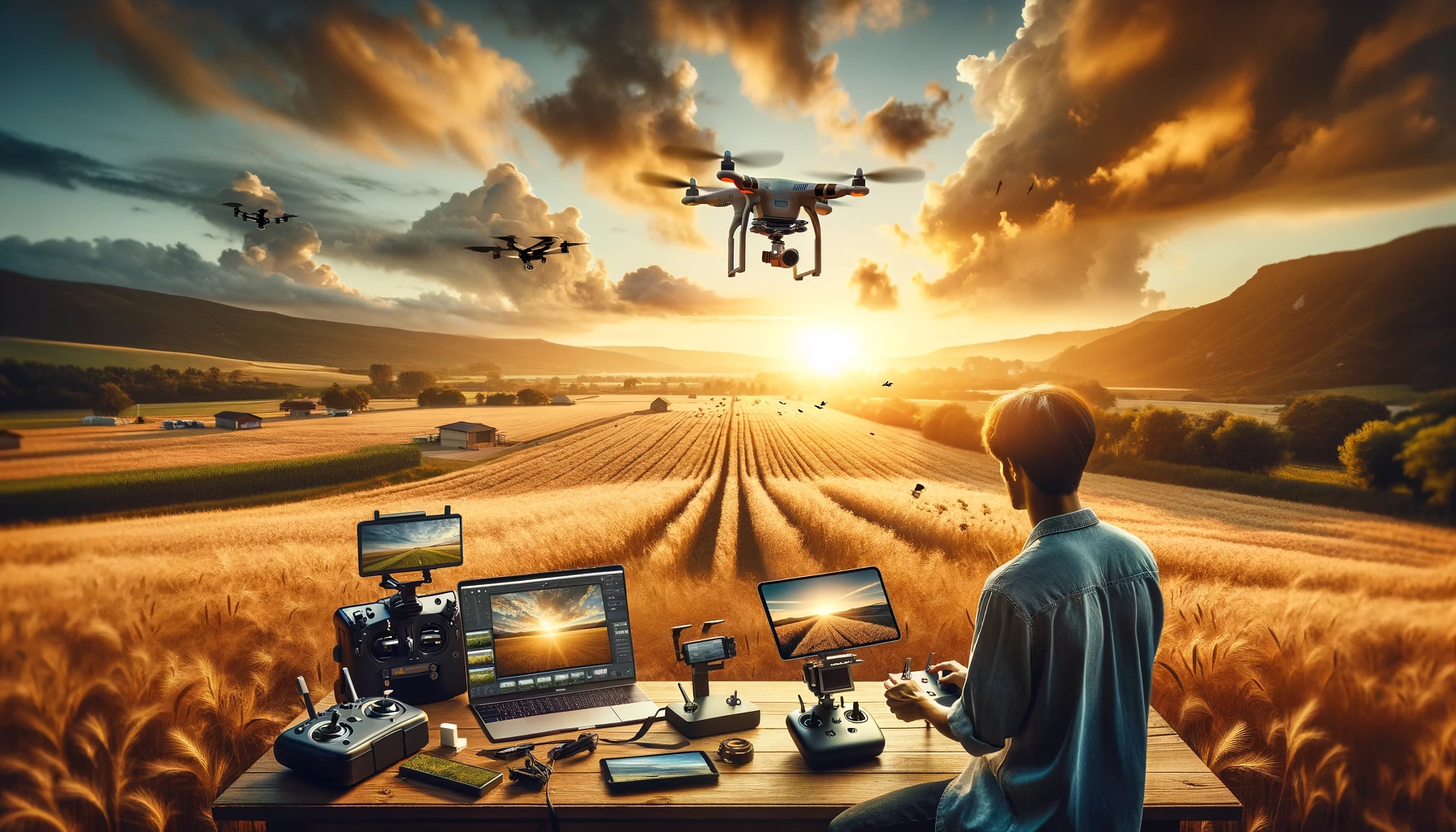

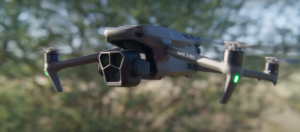
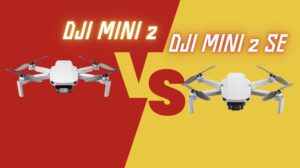
Pingback: Elevate Your Passion: How to.. Starting a Drone Photography Business from Scratch 2024 - Drone Gigs
Pingback: Autel Alpha Unveiled: The Ultimate Guide to Next-Generation Industrial Drones. - Drone Gigs
Pingback: (Drone Inspection Business) The Sky's the Limit: Revolutionising Construction and Infrastructure Inspections with Drone Technology in 2024 - Drone Gigs
Pingback: The Ultimate Guide to Search and Rescue Drones: Features, Performance, and Value 2024 - Drone Gigs
Pingback: DJI Avata 2: The Ultimate Review and In-Depth Comparison - Drone Gigs
Pingback: The Ultimate Guide to Environmental Drone Monitoring: Navigating the Skies of Conservation - Drone Gigs
Pingback: Revolutionising Surveillance: The Insider’s Guide to the Drone Security Business - Drone Gigs
Pingback: Comparing LiDAR Drones for Sale: Capabilities and Best Options - Drone Gigs
Pingback: The Shocking Truth: How One Drone Accident Almost Shut Down a Major UK Airport — Are We on the Verge of a Catastrophe? - Drone Gigs